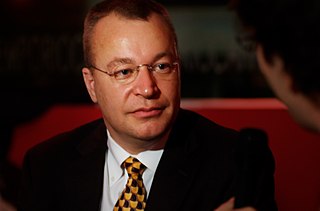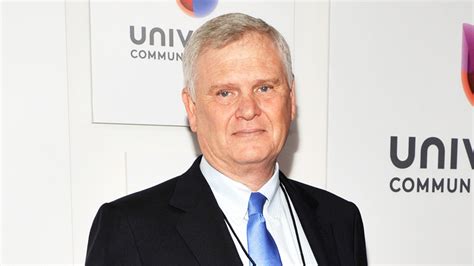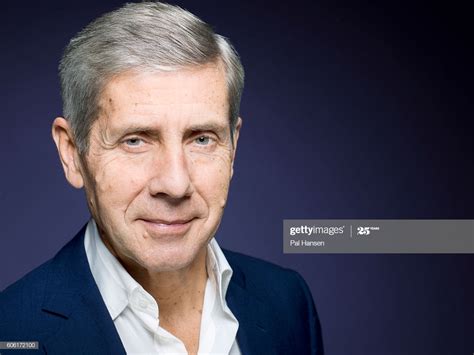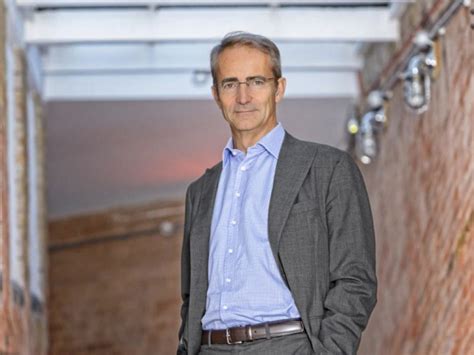A Quote by Indra Nooyi
PepsiCo is a $63 billion company. Half the company is snacks, and half the company is beverages. We have a glorious snacks business and a glorious beverage business. We are extremely profitable. We are growing.
Related Quotes
The only choice that leads small business owners to real success in their endeavors is the one that requires real thought. Understanding and building the systems they need within their company to afford them a framework of organization that can scale the business from a company of one to a company of one thousand.
If you look at the economics of Nokia, roughly half of the company, half of the business, half of how we think about the business is focused on those emerging markets and on those lower-priced devices. But, of course, people who are aspirational and buying those lower-priced devices today are looking at smart phones tomorrow, and so forth.
If you look at the economics of Nokia roughly half of the company, half of the business, half of how we think about the business is focused on those emerging markets and on those lower-priced devices. But, of course, people who are aspirational and buying those lower-priced devices today are looking at smart phones tomorrow, and so forth.
I took a dozen of our top managers to Argentina, to the windswept mountains of the real Patagonia, for a walkabout. In the course of roaming around those wild lands, we asked ourselves why we were in business and what kind of business we wanted Patagonia to be. A billion-dollar company? Okay, but not if it meant we had to make products we couldn't be proud of. And we discussed what we could do to help stem the environmental harm we caused as a company. We talked about the values we had in common, and the shared culture that had brought everyone to Patagonia, Inc., and not another company.
The profitable part of the online business is very likely several years away. Entering the business because it's the hot topic of the day doesn't make a profitable business nor satisfied customers. That's why it will be a part of Nintendo's strategy, not the mainstay, as other companies are attempting to do. There still are too many barriers for any company to greatly depend on it.
































